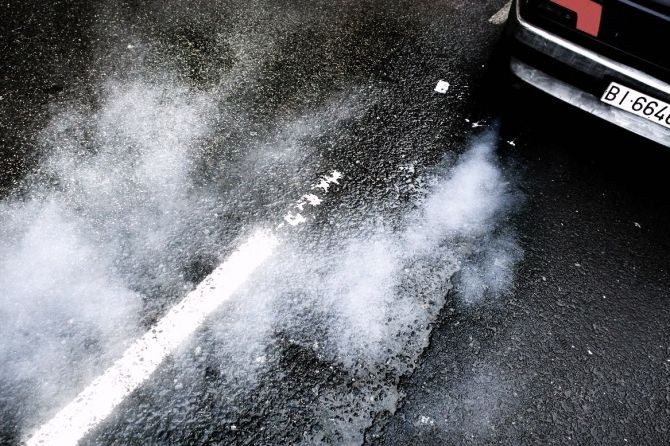Exhaust Fumes May Raise Autism Risk

Exposure to traffic pollution and poor air quality in the womb and in the first year of life may increase the risk for autism, a new study suggests.
The study, published Nov. 26 in the Archives of General Psychiatry, compared 279 autistic children with 245 children who didn't have the neurodevelopmental disorder and found that children exposed to the highest level of pollution were over three times more likely to develop the social and communications disorder compared to those exposed to the lowest levels.
Experts say that while the exact cause of autism, a physical condition linked to abnormal biology and chemistry in the brain, is unknown, genetic factors appear to be important, according to the National Institutes of Health. For example, identical twins are significantly more likely than fraternal twins or siblings to both have autism.
Other suspected environmental causes, involved diet, digestive tract changes, mercury poisoning, inability to properly digest vitamins and minerals, as well as vaccine sensitivity.
Past research has linked the immune system to autism, and Volk and her team explain that pollution affects these same pathways. Researchers say that the latest findings link the toxic chemicals in pollution to an increased risk of autism, suggesting that the pollutants may trigger a genetic predisposition to the condition.
Researchers speculate that the elevated autism risk from air pollution generated by car and truck traffic may be caused by exhaust particles, which contain particulate matter pollution and nitrogen dioxide or smog.
"The public health implications of these findings are large because air pollution exposure is common and may have lasting neurological effects," study author Heather Volk, an assistant professor of preventive medicine at the University of Southern California in Los Angeles, and her team wrote in their study.
While Volk and her team did not measure the particulate matter at the homes of the children in the study, they determined the air pollution levels based on the mother's address using air quality data from the U.S. Environmental Protection Agency.
Additionally, the study did not include sources of indoor pollution like second-hand smoke.
According to the EPA, small particulate matter from places like coal plants, car exhaust, fireplaces, and other sources common in urban areas, is known to cause heart attacks, early death, decreased lung function and asthma. Previous research found that cutting pollution by mere 7 micrograms per cubic meter can prolong a person's life by five months.
While, additional research is needed to confirm the link between air pollution and autism, the latest findings support earlier studies that link exposure to environmental toxins, particularly during the prenatal period, to an increased risk of autism.
In March, the U.S. Centers for Disease Control and Prevention reported that in 2008, 1 in 88 children had autism or a related disorder, a staggering 23 percent increase from 2006. Government health officials noted that it was unclear how much of the increase was because of greater public awareness of the disease.



























